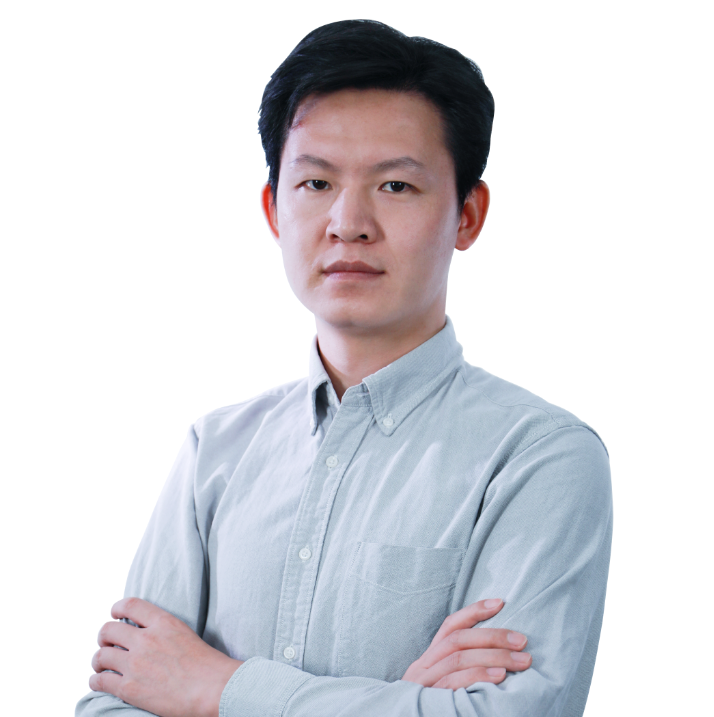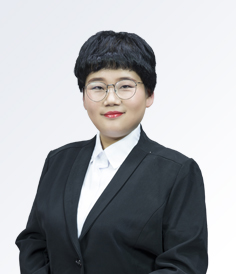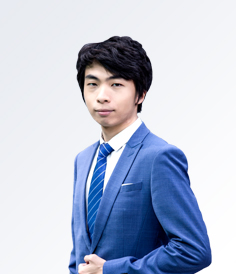浙江省2012年1月自学考试英国文学选读试题
浙江省2012年1月高等教育自学考试$lesson$
英国文学选读试题
课程代码:10054
Part Ⅰ. Blank-filling:
Complete each of the following statements with a proper word or phrase according to the textbook. (10 points in all, 1 point for each)
1. Shakespeare writes his sonnets in the popular English form of three ______ and a couplet.
2. The greatest and most distinctive achievement of Elizabethan literature is ______ .
3. The Neoclassical Period is also known as the Age of Enlightenment or the Age of ______ .
4. Jonathan Swift’s ______ is generally regarded as a model of the best satire not only in his time but in the whole English literary history.
5. William Blake is regarded as the first important romantic poet, opposing the ______ tradition of the 18th century, and treasuring the individual’s imagination.
6. The most important contribution Wordsworth has made is that he has not only started the modern poetry but also changed the course of English poetry by using ordinary speech of language and by advocating a return to ______ .
7. Charlotte Brontë’s works are famous for the depiction of the life of the middle?class working women, particularly ______ .
8. Thomas Hardy is often taken as a ______ writer, in whose works one can see the influence from both the past and the present, both in traditional and the modern.
9. In “The Love Song of J. Alfred Prufock”, Eliot presents an upper?class man who is a kind of tragic figure caught in a sense of defeated ______ and tortured by unsatisfied desires.
10. To create his modern Odyssey ? Ulysses, Joyce adopts a kind of ______ style.
Part Ⅱ. Multiple?choice questions:
Select from the four choices A, B, C and D of each item the one that best answers the question or completes the statement. (30 points in all, 1 point for each)
11. ______ , the first important English essayist, is best known for his essays which greatly influenced the development of this literary form. ( )
A. John Waytt转自环 球 网 校edu24ol.com
B. Francis Bacon
C. Shakespeare
D.Chaucer
12. ______ is the most common foot in English poetry.( )
A. The iamb
B. The anapest
C. The trochee
D. The dactyl
13. In “Sonnet 18”, Shakespeare ______.( )
A. meditates on man’s morality
B. eulogizes the power of artistic creation
C. satirizes human vanity
D. presents a dream vision
14. The ______ are generally regarded as Keats’s most important and mature works.( )
A. epics
B. lyrics
C. romances
D. odes
15. There are only two major novelists produced in the English Romantic Age. They are ______ .( )
A. Lamb and Hazlitt
B. Byron and Shelley
C. Scott and Austen
D. Austen and Hardy
16. Jane Austen presents most of the problems of the novel, Pride and Prejudice, from the ______ viewpoint. ( )
A. child
B. masculine
C. neutral
D. feminine
17. William Hazlitt is a great critic on ______, Elizabethan drama, and English poetry. ( )
A. Chaucer
B. Shakespeare
C. Homer
D. Ben Jonson
18. In Marriage of Heaven of Hell (1790), the word “Marriage”, to Blake, means the ______ .( )
A. subordination of the one to the other
B. co-existence of the conflicting parts
C. reconciliation of the contraries
D. fighting of the conflicting parts
19. Which of the following terms best describes the nature of Hardy’s later novels? ( )
A. sentimentalism
B. surrealism
C. tragic sense
D. comic sense
20. In the Victorian period, the ______ became the most widely read and the most vital and challenging expressions of progressive thought. ( )
A. novel
B. drama
C. poetry
D. prose
21. “I will drink / life to the lees.” In this quoted line the speaker Ulysses is saying that he ______ till the end of his life.( )
A. will keep traveling and exploring
B. will go on drinking and being happy
C. would like to toast to his glorious life
D. would like to drink the cup of wine
22. According to D. H. Lawrence, ______ was the first novelist that “started putting all the actions inside”.( )
A. T. S. Eliot
B. George Eliot
C. John Mill
D. John Ruskin
23. Mr. Micawber in David Copperfield and Sam Well in Pickwick Paper are perhaps the best ______ characters. ( )
A. comical
B. tragic
C. round
D. sophisticated
24. George Eliot’s only novel on English politics is ______ .( )
A. Middlemarch
B. Adam Bede
C. Felix Holt, the Radical
D. Silas Marner
25. In the statement ? “oh, God! Would you like to live with your soul in the grave?” the term “soul” evidently refers to ______ .( )
A. Heathcliff himself
B. Catherine
C. one’s spiritual life
D. one’s ghost
26. In “Araby”, Joyce’s diction evokes a sort of ______ quality that characterizes the boy on this otherwise altogether ordinary shopping trip. ( )
A. moral
B. sentimental
C. vulgar
D. religious
27. With the strong swing of the ______ in the 1930s, novelists began to turn their attention to the urgent social problems.( )
A. leftism
B. rightism
C. urbanism
D. ruralism
28. With the heroic portrayal of ______ truth as his main concern, Yeats wrote a number of verse plays. ( )
A. religious
B. spiritual
C. moral
D. social
29. “The Love Song of J. Alfred Prufrock” is presented as a(n) ______, suggesting an ironic contrast between a pretended love song and a confession of his incapability of facing love.( )
A. interior monologue
B. authentic dialogue
C. lyric song
D. religious confession
30. As a young man in the last decade of the 19th century, W. B. Yeats began his poetic career in the ______ tradition. ( )
A. modernist
B. realist
C. romantic
D. Victorian
31. T. S. Eliot’s acknowledged best play ______ contains the best poetry and the most coherent drama. ( )
A. The Elder Statesman
B. The Family Reunion
C. Murder in the Cathedral
D. The Cocktail Party
32. In his Finnegan’s Wake, an encyclopedic work, Joyce ambitiously attempted to pack the whole history of mankind into ______ .( )
A. one night’s dream
B. one person’s mind
C. one story
D. one day’s meditation
33. The bold and frank discussion of ______ in his novel Lady Chatterley’s Lover is the chief reason why D. H. Lawrence had been accused of pornographic writing. ( )
A. religion
B. morality
C. sex
D. death
34. The title of the novel Vanity Fair was taken from John Bunyan’s masterpiece ______ .( )
A. Hard Times
B. The Pilgrim’s Progress
C. Gulliver’s Travels
D. The Monk
35. In 1805, William Wordsworth composed a long autobiographical poem entitled ______ .( )
A. Lucy Poems
B. Lyrical Ballads
C. The Prelude
D. The Solitary Reaper
36. ______, written by Alexander Pope satirized the idle and artificial life of the aristocracy. ( )
A. The Rape of Lucrece
B. The Rape of the Lock
C. The Essay on Criticism
D. A Tale of Tub
37. ______ compiled the Dictionary of the English Language, the first English dictionary compiled by an Englishman. ( )
A. Ben Jonson
B. Samuel Johnson
C. John Dryden
D. Alexander Pope
38. Shaw is a master of play. His plays have plots but they do not work by plots. It is the vitality of the ______ that takes primacy over mere story. ( )
A. characterization
B. depiction
C. talk
D. metaphor
39. Which of the following is NOT written by Robert Browning? ( )
A. Men and Women
B. The Ring and the Book
C. Pauline
D. Idylls of the King
40. “‘I believe you are made of stone’, he said, clenching his fingers so hard that he broke the fragile cup. ‘You seem to forget,’ she said, ‘that cup is not!’” From the quotation we may suppose the woman’s tone is very ______ .( )
A. sarcastic
B. delightful
C. sentimental
D. humorous
Part Ⅲ. Definition:
Define the literary terms listed below. (20 points in all, 5 points for each)
41. Utilitarianism
42. Dramatic Monologue
43. Modernism
44. The Angry Young Men
Part IV. Reading Comprehension:
Read the quoted parts carefully and answer the questions in English. (20 points in all, 5 points for each)
45. “From rest and sleep, which but thy pictures be,
Much pleasure; then from thee much more must flow,
And soonest our best men with thee do go,
Rest of their bones, and soul’s delivery”.
Questions:
A. Identify the poem and the poet.
B. Briefly interpret this part.
46. “Is not a parton, my Lord, one who looks with unconcern on a man struggling for life in the water, and when he has reached ground, encumbers him with help?”
Questions:
A. Which essay is this passage taken from? Who is the author?
B. Briefly interpret this part.
47. “A violet by a mossy stone
Half hidden from the eye!
― Fair as a star, when only one
Is shining in the sky”.
Questions:
A. Identify the poem and the poet.
B. Briefly interpret this passage.
48. “He flung himself into the nearest seat, and on my approaching hurriedly to ascertain if she had fainted, he gnashed at me, and foamed like a mad dog, and gathered her to him with greedy jealousy. I did not feel as if I were in the company of a creature of my own species”.
Questions:
A. Which essay is this passage taken from? Who is the author?
B. How do you think about the protagonist’s mind?
Part Ⅴ. Topic Discussion:
Give brief answers to the following questions. (20 points in all, 10 points for each)
49. In what styles does James Joyce create Ulysses?
50. What’s the moral of George Eliot’s novel Silas Marner?
-
自学考试备考必备资料拼团已拼3528团
-
近4年自考《马克思主义基本原理》概论真题及答案汇总(22年-25年)查看3.35MB 下载数 90
-
近3年自考《美学》真题及答案汇总(23年-25年)查看1.62MB 下载数 10
-
近4年自考《外国文学史》真题及答案解析(22年-25年)查看2.56MB 下载数 15
高sir的AI小课堂
AI高效办公 AI高效办公
05月06日 11:00-13:00
 高容国
高容国
让一部分人先用好AI:学会三招提示词技巧,让你的AI真正懂你
AI启航 AI启航
05月07日 11:00-12:00
 张颖
张颖
22周年庆收官盛典
公司活动 公司活动
05月08日 11:00-14:00
 环球网校
环球网校
学历提升,刻不容缓
自学考试 自考入门导学
05月15日 11:00-12:00
 王涛
王涛
本直播为付费学员的直播课节
请您购买课程后再预约
最新资讯
- 听说今年考的偏?一起来看25年4月自考《中国近现代史纲要》真题及答案汇总2025-04-15
- 看看考了啥!2025年4月自考《习概》真题及答案汇总2025-04-15
- 免费下载!2025年4月自考专业课真题及答案汇总完整版2025-04-15
- 对答案!2025年4月自学考试结束!一起来估分(附真题答案解析完整版)2025-04-15
- 完整版汇总!2025年4月自考《英语二》真题答案2025-04-14
- 免费下载!2025年4月自考公共课及专业课真题及答案汇总2025-04-14
- 免费下载完整版!2025年4月自考《西方行政学说史》真题及答案解析2025-04-14
- 真题汇总!2025年4月自考《习概》选择题真题及答案免费下载2025-04-14
- 完整版汇总!2025年4月自考《中国现代文学史》名词解释+论述真题及答案2025-04-14
- 简答题!2025年4月自考《中国现代文学史》真题及答案解析免费下载2025-04-14
自学考试历年真题下载 更多
-
近4年自考《马克思主义基本原理》概论真题及答案汇总(22年-25年)3.35MB 下载数 90 查看
-
近3年自考《美学》真题及答案汇总(23年-25年)1.62MB 下载数 10 查看
-
近4年自考《外国文学史》真题及答案解析(22年-25年)2.56MB 下载数 15 查看
自学考试备考必备资料已拼3528团 拼团
-
近4年自考《马克思主义基本原理》概论真题及答案汇总(22年-25年) 3.35MB 下载数 90 查看
-
近3年自考《美学》真题及答案汇总(23年-25年) 1.62MB 下载数 10 查看
-
近4年自考《外国文学史》真题及答案解析(22年-25年) 2.56MB 下载数 15 查看






 打卡人数
打卡人数





